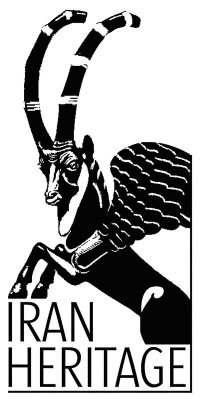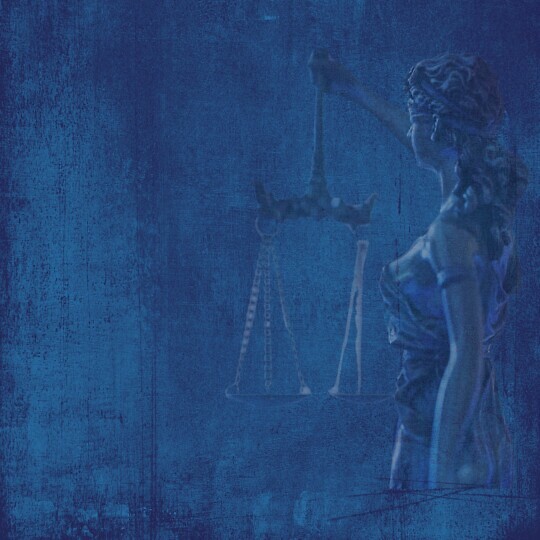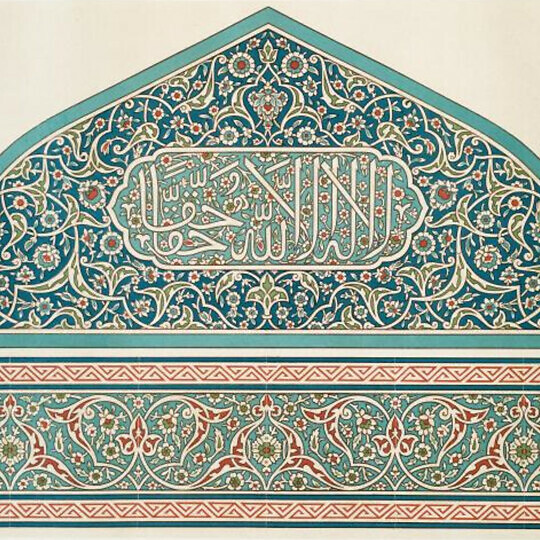| 10 Sep 2015 - 12 Sep 2015 | All day | CRASSH, Alison Richard Building, 7 West Road, CB3 9DT - SG1&2 | |
- Description
- Programme
- Abstracts
Description
Please register online for this event.
Conference fee: £50 (full), £25 (students) – includes lunch, tea/coffee
Deadline: Sunday 6 September 2015
Convener
David Motadel (Gonville and Caius College, Faculty of History)
Houchang Chehabi (Boston University)
Summary
In the heyday of empire, most of the world was ruled, directly or indirectly, by the European powers. On the eve of the First World War, only a few non-European states had maintained their formal sovereignty: Abyssinia (Ethiopia), China, Japan, the Ottoman Empire, Persia (Iran), and Siam (Thailand). Some others kept their independence for a while, but then succumbed to imperial powers, such as Hawaii, Korea, Madagascar, and Morocco. Facing imperialist incursion, the political elites of these countries sought to overcome their political vulnerability by engaging with the European powers and seeking recognition as equals.
The conference ‘Sovereignty and Imperialism: Non-European Powers in the Age of Empire’ will explore how diplomats, military officials, statesmen, and monarchs of the independent non-European states struggled to keep European imperialism at bay. It will address four major aspects of the relations of these countries with the Western imperial powers: armed conflict and military reform (Panel 1); capitulations, unequal treaties, and subsequent engagement with European legal codes (Panel 2); royalty and courts (Panel 3); and diplomatic encounters (Panel 4). Bringing together scholars from across the world, the conference will be the first attempt to provide comparative perspectives on the non-European powers’ engagement with the European empires in the era of high imperialism.
Sponsors


Supported by the Centre for Research in the Arts, Humanities and Social Sciences (CRASSH), the Trevelyan Fund and the Iran Heritage Foundation.
Accommodation for speakers selected through the call for papers and non-paper giving delegates
We are unable to arrange or book accommodation, however, the following websites may be of help.
Visit Cambridge
Cambridge Rooms
University of Cambridge accommodation webpage
Administrative assistance: events@crassh.cam.ac.uk
Programme
| DAY 1 - Thursday 10 September 2015 | |
| 15.00-15.30 | Registration & Coffee |
| 15.30-16.00 | INTRODUCTION |
| 16.00-18.00 | PANEL 1: ROYALTY Chair: David Motadel (Edinburgh and Cambridge)
|
| 19.00 | Reception and dinner at Gonville and Caius College for speakers and chairs. |
| DAY 2 - Friday 11 September 2015 | |
| 9.30-11.00 | PANEL 2: DIPLOMACY Chair: Professor Ali Ansari (St. Andrews)
|
| 11.00-11.30 | Coffee break |
| 11.30-13.00 |
|
| 13.00-14.00 | Lunch |
| 14.00-15.30 | PANEL 3: CAPITULATIONS AND THE MILITARY Chair: Dr. Kate Miles (Cambridge)
|
| 15.30-16.00 | Tea break |
| 16.00-17.30 |
|
| DAY 3 - Saturday 12 September 2015 | |
| 9.00-10.00 | Panel 4: DEFEATS Chair: Francesca Fuoli (SOAS)
|
| 10.00-10.30 | Coffee break |
| 10.30-11.30 |
|
| 11.30-11.45 | Short break |
| 11.45-12.45 | CONCLUDING DISCUSSION |
Abstracts
Abbas Amanat (Yale University): Strategies of survival in Qajar Iran
Facing European expansionist empires at the outset of the 19th century proved to be a painful adjustment for Qajar Iran. Military defeat, territorial losses and economic drawbacks aside, Qajar political culture had to come up with new strategies of survival. This paper discusses the evolving aspects of Qajar court culture, reinvention of the ancient Persian kingship, new modes of diplomacy and negotiations, and gradual realization of Iran’s strategic advantage as a buffer state in between Russia and Britain. As a legacy of the Safavid and post-Safavid eras, the notion of the Guarded Domains of Iran (mamalek-e mahruseh-e Iran) conceptualized a Persian system that strived not only to strike a balance between the periphery and the center (marz va bum) and between the two spheres of religion and the state (din va dowlat) but also between the court (dargah) and the administration (divan). Maintaining such an equilibrium (or equilibriums) became even more precarious for the Qajar state when the east-west bipolarity in Iran’s foreign policy (i.e. Indian princely states, Afghanistan and Turkmen confederacies in the east and the Ottomans in the west) significantly overshadowed by the intrusive presence of a new north-south bipolarity between the rival European empires. The Qajar record of preserving Iran’s sovereignty and territorial integrity was by no means insignificant. Preserving the Persian center at the expense of the periphery (the Caucasus and the Herat) proved to be inevitable when military defiance against technologically superior European powers was no longer an option. Persuasive words, not powerful guns, were the only weapons of resistance in the age of high imperialism. But such a strategy came at a price. The Qajar state could only buttress its sovereignty by placing monarchy (saltanat) at the pinnacle of a quivering political pyramid. This evolved into a complex system that could survive against domestic forces of resistance through coercion, negotiation, and persuasion. The outcome not only was social contention and haphazard courses of action but the weakening of the divan and hindrance to the authority of its chief representative, the ministerial power (vezarat), as independent agent in the process of state formation.
Cemil Aydin (University of North Carolina at Chapel Hill): The Question of Caliphate and the Ottoman Strategy of Spiritual Sovereignty in Euro-Centric Imperial Order
In terms of the Ottoman Empire’s relationship with the Eurocentric notions of international law and standard of civilization, a couple of observations have already been made by previous scholarship.
a) The Ottoman Empire was sovereign in theory, but due to its economic and political weakness, it was subjected to legal practices that violated its imperial sovereignty, such as extraterritoriality, unequal treaties and symbolic violations of respects, and classified in the same group with other non-colonised non-European polities (China, Japan, Korea, Persia, Morocco, Zanzibar, Siam). Gradually, European powers and their lawyers transferred ideas and models of legal inequality from one context to another (from Ottoman to China or from China to Japan, for example), and created a global pattern of practice by early 20th century that relied more on rigid justifications via legal languages of standards of civilization.
b) Ottoman elites like Chinese, Persian or Japanese elites, struggled to overcome the discriminatory treatment of their nations in international law by challenging the civilizational and racial justifications of extraterritoriality, or by proving that their reforms help fulfilled the standards of civilization their empires were subjected to.
c) The agency of the political elites and lawyers of semi-peripheral political entities of the Ottoman Empire, China, Japan as well as Latin American nations, not only eventually allowed them to establish full legal equality for their nations, but also reshaped Eurocentric and Christian biased international law a truly universal law. As colonized subaltern societies universalized principle of nationalism and self-determination, semi-peripheral lawyers and elites universalised international law.
d) Abolishment of Capitulations and unequal treaties with regard to the Ottoman Empire have become one of the major state goals, and sign of Ottoman discontent about the imperial international order, registering into Ottoman war aims during WWI, and finally achieved at Lausanne Treaty of 1923.
What is to be said in addition to these main points: We have yet to fully examine how the Ottoman government tried to create a legal space for Ottoman’s sultan’s spiritual sovereignty as a Caliph over Muslims living under the rule of Christian monarchs and rulers, especially in British, Dutch and Russian empires. While developing special patterns of relationship with various Muslim rulers of Zanzibar, Morocco, Hyderabad, Johor and Aceh, the Ottoman rulers strengthened ties with Muslim pilgrims, travelers, and migrants, emphasizing religious significance of the ties as opposed to political ones. This assertion of Muslim religious ties to a Caliph posed challenges to inter-imperial legal relations. After all, the Caliph that Indian or Indonesian Muslims claimed to have spiritual ties with was also a modern monarch of a multi-religious empire. Especially Abdulhamid II tried to benefit from his Caliphate authority over Muslims outside of the Ottoman domains as a leverage in Ottoman diplomatic relations and as a corrective to the unequal treatment of his empire. He particularly wanted to use the British Empire’s status as the Greatest Muhammedan Empire and his title as a Caliph to argue for a return to British-Ottoman alliance of the 1860s. The result of the use of Caliphate title of Ottoman Sultans in inter-imperial legal relations requires attention not only to the agency of non-European actors in shaping the modern international order, but also to the question of religious identity in discourses of standard of civilization.
Henrietta Harrison (Oxford University): Chinese and British Gift Giving in the Macartney Embassy of 1793
This paper will look at the gifts given and received by the Macartney embassy to China. These gifts were intended by the English to present British civilisation and knowledge to the Chinese and earlier studies have tended to fault the Qing court for understanding the gifts as tribute and in particular the emperor’s failure to interpret these gifts as clues to the sources of British power in the Industrial Revolution. However, the gifts were also the product of particular understandings of gift giving in diplomatic exchange. As such they interacted with the gifts given by the Qianlong emperor and his officials to George III and to members of the embassy, which also conveyed meanings that were not always understood by the recipients. This paper looks at the choice, reception and afterlife of both the Chinese and the British gifts.
Eiko Kuwana (University of the Sacred Heart, Tokyo): At a Crossroads of Civilization and Barbarism: A Diplomat’s View of Meiji Japan and the Significance of the Sino-Japanese War of 1894-95
My presentation focuses on Count Heinrich Coudenhove, who led the Austro-Hungarian legation in Tokyo in 1893-96, and his view of Meiji Japan around the time of the Sino-Japanese War. In his reports, memoranda and private correspondence, Coudenhove has given vivid first hand accounts of Japan standing at the threshold of modern statehood, and predicted its subsequent rise to the status of a major Power.
Japan in the 1890s stood at a critical juncture of its history. Forced to open the country under the pressure of the U.S. and the European Powers, Japan underwent a series of wide-ranging reforms, which culminated in the introduction of a western-style Constitution in 1889 and the opening of the National Diet in 1890. Coudenhove admired the courage and determination of Hirobumi Ito, the creator of the constitutional system in Japan, but remained deeply skeptical of its future viability.
Indeed, practicing constitutionalism in a society imbued with traditional sense of social order was no easy task. A majority of the Lower House Deputies in 1893 was clearly hostile to the government and called for immediate expulsion of foreigners and revision of unequal treaties. Foreign Minister Munemitsu Mutsu, Ito’s close ally, addressed the House on December 29th, urging the members to stay on the course toward progress and civilization. The epoch-making speech by Mutsu met Coudenhove’s unqualified approval.
Japan faced new challenges in relations with its neighbors as well. Korea had been a vassal state of China in the centuries-old tribute system. Japan, on the other hand, insisted on the status of Korea as an independent state, supporting the latter7s effort to modernize itself. In 1885, pro-Chinese factions in Korea defeated the pro-Japanese reformers, however, dashing Japan’s hope to ensure Korean neutrality.
In Coudenhove’s view, the Sino-Japanese War of 1894-95 was a conflict between two different types of international order. It was a war between forces of progress and civilization on the one hand, and forces of backwardness and barbarism on the other. It is rather striking that Japan, a rising nation-state, was compared to the Hellenes of Ancient Greece, while China, a declining multi-national Empire, was to Persia in one of his reports dating December 1894.
Oliver Bast (University of Manchester): Iran’s Two Bodies: Performing Sovereignty in the Age of High Imperialism
Vincent Sheean (1899-1975), the famous American author, foreign correspondent, and adventurer who describes his travels in Iran in the mid-1920s in The New Persia (New York: The Century Co, 1927), reports the following remark made to him by Theodore A. Rothstein, the Old Bolshevik who had served as the first (formally accredited) Soviet Minister to Iran between 1921 and 1922: ‘Persia is fundamentally sound. They will take money from everybody. From the British today from the Russians tomorrow or from the French or the Germans or anyone else. But they will never do anything for the money. You may buy their country from them six times over but you will never get it. I say Persia can never go under. Persia is fundamentally sound.’ (Sheean, pp, 27-28).
The author of Egypt’s Ruin (London: Fifield, 1910) knew a great deal about Non-Europeans’ struggles for sovereignty in the face of imperialism. Therefore, leaving to one side its flippant rhetoric, Rothstein’s dictum neatly sums up the curious paradox that we try to address: During the late Qajar period (ca. 1873-1925), on which this paper focuses, Iran’s sovereignty appeared to be quasi non-existent from a domestic perspective. Viewed from Tehran, where the representatives of imperial(ist) powers wielded enormous political influence while the foreign ‘pénétration pacifique’ of the country’s economy progressed apace, the idea of Iran as an independent country seemed increasingly ludicrous. Yet, while the proverbial Persian Question loomed ever more ominously over Iran’s maltreated and thus literally dying physical body back at home, abroad, Iran’s actors on the stage of international diplomacy – (rightly) unfazed by the apparent futility of their ostensibly ridiculous endeavour – indefatigably enacted and re-enacted the spectacle of Iran’s enduring spiritual body at each and every opportunity, be that at any of the Imperial (!) Iranian Legations across the globe, through vigorous membership in international bodies such as the ICRC (and later the League), by vocal participation in international conferences such as one at The Hague of 1907, or by staging dazzling state visits full of pomp and circumstance such as in e.g. 1873 or 1919. Thereby, they ultimately achieved Iran’s survival of the era of High Imperialism as an independent state against all odds.
Informed, in parts, by research in Iranian, Russian, as well as other archives, and aiming to enrich diplomatic history with conceptual inspiration from dramaturgical sociology, performance/theatricality studies, as well as culture of diplomacy approaches, this paper proposes to analyse how Iran’s sovereignty in the Age of Empire was secured by performing it.
Andreu Martínez d’Alòs-Moner (Hamburg University and University of Gondar): Ethiopia’s “Sonderweg” into the Nation State System: A Long Durée Approach
This paper will explore the slow way of Ethiopia into the modern nation state system, which will culminate in the twentieth century with its acceptance into the League of Nations. The paper will take a long durée approach and look at the different strategies –from caravan blockade and gift exchange to religious missions– that Ethiopian rulers and Ethiopian élites employed in the past to establish foreign relations with neighbouring and distant polities. The paper will further focus on the decisive period during the nineteenth century when the country enters the international scene as an active player. It was then when the regional and national rulers of highland Ethiopia carried out more articulated foreign policies to defend their interests and to come to terms with foreign interventionism. The study will explore the strategies employed during modern times by Ethiopian principalities, first, and by the centralized Ethiopian state, later, to negotiate their status as sovereign polities and to face the growing encroachment of European and Egyptian powers. The paper will address a question that has since long haunted scholars of Ethiopian history: Did the Ethiopian state successfully use diplomacy and politics to maintain its independence or rather did (foreign) diplomacy bring her into a situation of dependency from foreign powers, who provided her with weapons, military assistance and financial aid?
Sven Trakulhun (University of Zurich): Outside in the Colonial Machine: Thailand as an Imperialist Colony
The kingdom of Siam (present-day Thailand) has long been regarded as one of the few countries in the world to evade colonization. The narrative of Siam’s successful struggle for sovereignty in the age of empire dominates Thai national historiography until today and has provided the basis for various claims of exceptionalism centered on the crucial role of the monarchy in protecting Siam’s independence. However, a closer look at Siam’s political history in the nineteenth and early twentieth centuries distorts the official view. The country’s economy was highly dependent of foreign powers, and Siam’s sovereignty clearly limited by legal and political restrictions imposed by European imperial nations; from this perspective, Siam appears colonized. Yet at the same time Siamese rulers were expanding their territory on the expense of smaller neighbors (particularly in the Muslim South), adopted Western notions of geography and nationhood, and enforced in their newly acquired provinces administrative and legal systems, shaping the new state largely after the model of the British Empire. From this angle, Siam resembles an imperial nation that implemented within its territory forms of European colonial modernity, while also retaining many characteristics of “pre-colonial” rule. By looking at the various adoptions of Western administrative institutions and theories of knowledge instrumental for the exercise of power, this papers elaborates on how Thailand’s ambiguous political status in the age of imperialism undermines the familiar bifurcation of colonial/non-colonial states and adds to our understanding of the various responses to the global impact of Western colonial modernity.
Rana Mitter (Oxford University): Nationalism and Ideas of Sovereignty in China in the Age of Fluid Empires, 1912-1949
Ideas of sovereignty in mid-20th century China were deeply shaped by engagement with empire. What has been less appreciated is that different forms of imperial presence led to different responses from Chinese nationalist actors, whether the Nationalist party (Guomindang), the Communist Party (CCP), or figures who advocated closer cooperation with the Japanese empire (whether in Manchuria in the 1920s or wartime China in the 1930s). This paper will examine changing ideas of what Chinese sovereignty was, as conceived by political and intellectual elites, by examining it in the context of changing ideas of sovereignty put forward by the major empires of the era, including the incipient Cold War empires of the post-1945 period.
Ali Gheissari (University of San Diego): Off-Guarded Domain: Unequal Treaties, Capitulations, and Reforming the Legal System in Qajar and early Pahlavi Iran
This paper offers an overview of the impact of Russia and Britain on Iran in the Qajar and early Pahlavi periods through unequal treaties as one channel of projecting influence, and counterbalancing rival presence. Although Iran was not directly colonized, its sovereignty was frequently compromised by competing imperial interests as reflected in a number of major treaties and concessionary agreements, such as the Turkmenchay Treaty of 1828, establishing so-called “capitulation:” extraterritorial jurisdiction for foreign subjects.
The signing of such treaties, in spite of their unequal political and economic terms, was instigated by complex sets of motives often ignored in nationalist narratives. For instance, in spite of a generally negative assessment of concessionary treaties as a symptom of Qajar incompetence, they were viewed by the state itself as opportunities on its part to modernize the economy and thereby perhaps even deserving to receive plaudits. These hopes were usually dashed. Concessionary agreements fed directly into an irreversible articulation of a counter discourse bent on questioning Qajar legitimacy—as can be seen in the Tobacco Protests in 1891-92. On the other hand, a significant agreement, such as the D’Arcy Concession of 1901 for the exploration of oil in southern Iran, was only challenged effectively half a century later. There were also other forms of treaties by passing the state itself altogether, such as the Anglo-Russian agreement of 1907 dividing Iran into zones of influence.
Finally, it will be noted that capitulation preserved its negative value in nationalist political language in the 20th century and its abolition viewed as priority. Legal reforms of the early Pahlavi period were in part presented as a step in that direction—especially with regard to a more systematic introduction of modern procedural laws, ranging from the penal code to commercial laws affecting both domestic and foreign nationals.
David Sai (University of Hawaii): Hawaiian Neutrality: From the Crimean Conflict to the Spanish-American War
Only a decade since the Anglo-French proclamation of 28 November 1843 recognizing the Hawaiian Islands as an independent and sovereign State, the Hawaiian Kingdom would find itself being a participant State, during the Crimean conflict, in the abolishment of privateering and the formation of international rules protecting neutral goods. This set the stage for Hawaiian authorities to secure international recognition of its neutrality. Unlike States that were neutralized by agreement between third States, e.g. Luxembourg and Belgium, the Hawaiian Kingdom took a proactive approach to secure its neutrality through diplomacy and treaty provisions by making full use of its global location, which undoubtedly was double-edged. On the one hand, Hawai‘i was a beneficial asylum, being neutral territory, for all States at war in the Pacific Ocean, while on the other hand it was coveted by the United States for its military and strategic importance. This would eventually be revealed during the Spanish-American War when the United States deliberately violated the neutrality of the Hawaiian Islands and occupied its territory in order to conduct military campaigns in the Spanish colonies of Guam and Philippines, which was similar, in fashion, to Germany’s occupation of Luxembourg and the violation of its neutrality when it launched attacks into France during the First World War. The difference, however, is that Germany withdrew after four years of occupation, whereas the United States remained and implemented a policy of ‘denationalization’ in order to conceal the prolonged occupation of an independent and sovereign State. This paper challenges the commonly held belief that Hawai‘i lost its independence and was incorporated into the United States during the Spanish-American War. Rather, Hawai‘i remains a State by virtue of the same positive rules that preserved the independence of the occupied States of Europe during the First and Second World Wars.
Kirk Larsen (Brigham Young University): The annexation of Korea: Sui generis or just another example of ‘High Imperialism’?
The Japanese annexation of Korea in 1910 was one of the last instances of direct territorial acquisition in the age of “high imperialism.” Historians who have studied this era—Korean and non-Korean alike—have often grappled with two related questions: 1) Why did Korean become a colony in the first place? and 2) Why was it that Japan (and not a Western power) colonized Korea? Exploration of the various answers that have been offered to these two questions reveals much about the nature of imperialism in late-19th- and early-20th-century East Asia. It also sheds light on the ways in which the Korean case is comparable to other instances of imperialism and the ways in which it seems rather different from the usual pattern.
Gwyn Campbell (McGill University): The Colonisation of Madagascar: Indigenous Policy, British Pragmatism, and French Fortuitousness
This paper examines the reasons for the French imperial takeover of Madagascar in 1895. It does so from three angles. The first analyses indigenous Merina policies to thwart European imperial ambitions in Madagascar, and their domestic economic and political repercussions. The second examines British policies towards Madagascar from three perspectives: those of the neighbouring British colony of Mauritius, British missionary societies, and the Foreign Office. The third looks at French imperial ambitions in Madagascar. The final section of the paper examines in what ways from the 1870s shifts in indigenous, regional European, and metropolitan imperial forces, combined to undermine the ability of the indigenous Merina kingdom to resist a finally successful French imperial takeover.
Eiko Kuwana (University of the Sacred Heart, Tokyo): At a Crossroads of Civilization and Barbarism: A Diplomat’s View of Meiji Japan and the Significance of the Sino-Japanese War of 1894-95
My presentation focuses on Count Heinrich Coudenhove, who led the Austro-Hungarian legation in Tokyo between 1893 and 1896, and his view of Meiji Japan around the time of the Sino-Japanese War. In his reports, memoranda and private correspondence, Coudenhove gave vivid first-hand accounts of Japan standing at the threshold of modern statehood, and predicted its subsequent rise to the status of a major power.
Japan in the 1890s stood at a critical juncture of its history. Forced to open the country under the pressure of the U.S. and the European powers, Japan underwent a series of wide-ranging reforms, which culminated in the introduction of a western-style Constitution in 1889 and the opening of the National Diet in 1890. Coudenhove admired the courage and determination of Hirobumi Ito, the creator of the constitutional system in Japan, but remained deeply skeptical of its future viability.
Indeed, practicing constitutionalism in a country imbued with traditional sense of social order was no easy task. A majority of the Lower House Deputies in 1893 was clearly hostile to the government, and called for immediate expulsion of foreigners as well as the revision of unequal treaties. Foreign Minister Munemitsu Mutsu, Ito’s close ally, addressed the House on December 29th, urging the members to stay on the course toward progress and civilization. The epoch-making speech by Mutsu met Coudenhove’s unqualified approval.
Japan faced new challenges in relations with its neighbors as well. Korea had been a vassal state of China in the centuries-old tribute system. Japan, on the other hand, insisted on the status of Korea as an independent state, supporting the latter’s effort to modernize itself. In 1884, however, pro-Chinese factions in Korea defeated the pro-Japanese reformers, dashing Japan’s hope to ensure Korean neutrality.
In Coudenhove’s view, the Sino-Japanese War of 1894-95 was a conflict between two different types of international order. It was a war between forces of civilization on the one hand, and forces of backwardness and barbarism on the other. In one of his reports dated December 1894, Japan, a rising nation-state, was compared to Ancient Greece, while China was likened to Persia, the declining Empire that was to be defeated by the Hellenes.
Erik Jan Zürcher (Leiden University): The reform of the Ottoman army as an example of defensive modernisation
The change in the balance of power between the Ottoman Empire and its main European competitors became visible for the first time in a series of five major wars lost by the empire over the period 1768-1839. In reaction to this development the Ottoman government decided to adopt, first, a state commissioned standing army and, then, in 1844, military conscription. The introduction of a large modern conscription-based army imposed a very heavy burden on the state as well as on the population. This burden was also very unevenly spread. While it is true that every conscription system included exemptions, the fact that forty percent of the population, the non-Muslims, were exempted in the empire undermined the Ottoman modernisation effort from the beginning. In addition, the building of the new army was not accompanied by the building of an industrial and communications infrastructure. However, in spite of these handicaps, in the course of the next seventy years the new army grew into a powerful instrument of state control as well as a reasonably effective instrument for the defence of the realm. Because of its lack of industrial infrastructure the Ottoman Empire never achieved great power status in the age of imperialism (even if it was formally recognized as part of the ‘Concert of Europe’ in 1856) in the way that Japan did, but neither did it suffer the humiliations at the hands of European powers that Ch’ing China had to undergo. That it did not was primarily due to its position in the world of imperialist rivalry, but the fact that it managed to build a sizeable European-style army also played a part.













